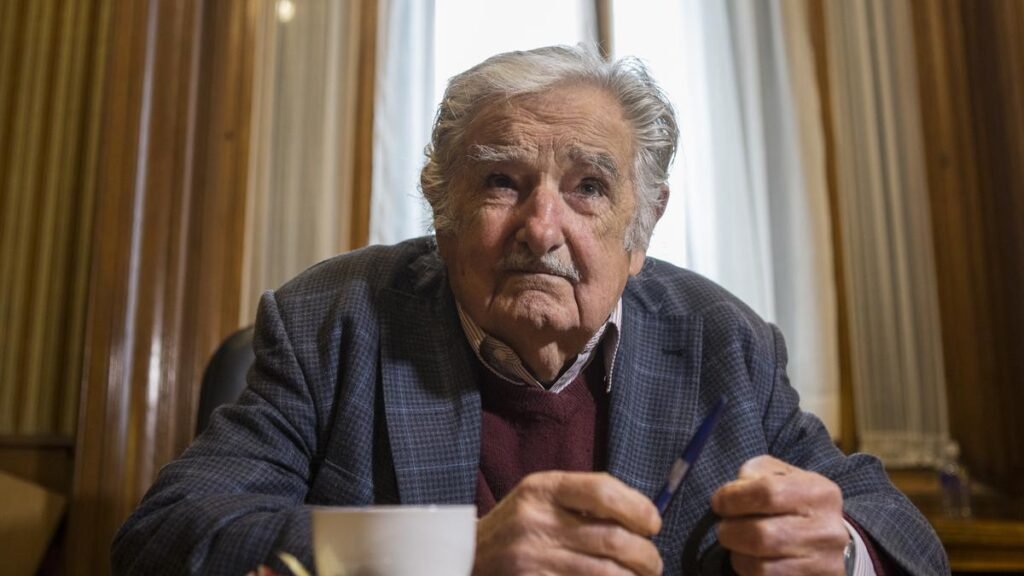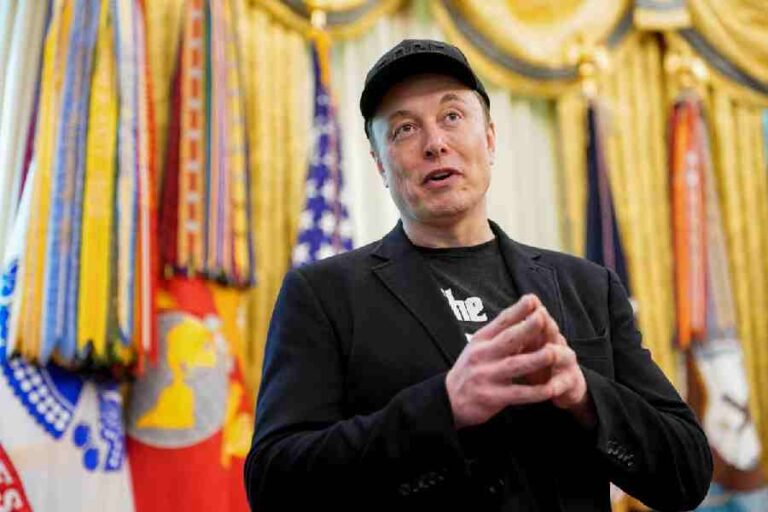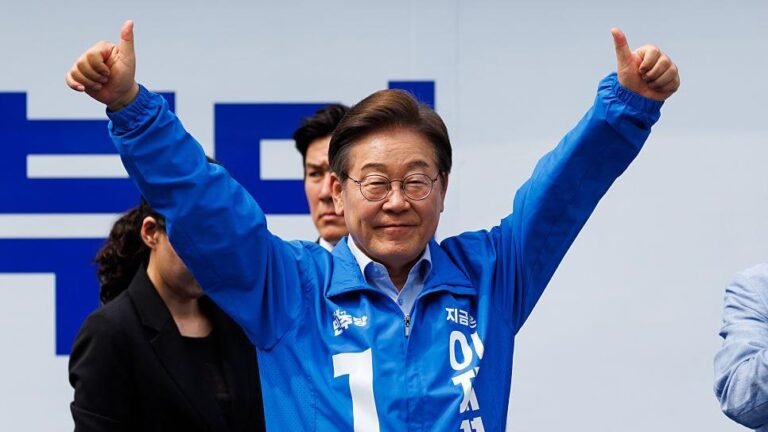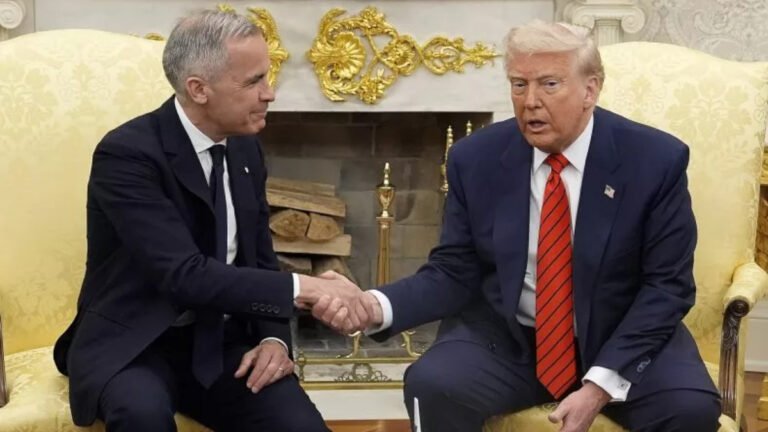
14 May 2025, Montevideo, Uruguay
In 2012, during an interview at his home halfway through his term as Uruguayan president, José Mujica surprised us by offering “a drink.” It wasn’t even noon yet. He washed some glasses, added ice, and poured whiskey, starting a relaxed conversation that jumped from one topic to another.
“I’m going to leave politics with my feet forward,” the former Tupamaro guerrilla, who served as Uruguay’s president from 2010 to 2015, said during the meeting with BBC Mundo.
He meant that he would continue doing the work he loved until his death, which came on Tuesday at the age of 89.
Mujica was a special figure for the Latin American left due to his simple lifestyle as president, his criticism of consumerism, and his social reforms. Among these reforms was the legalization of marijuana, making Uruguay the first country to do so.
While his popularity spread globally, something unusual for a Uruguayan leader, his legacy was controversial in his home country of just 3.4 million people.
As president, Mujica refused to live in the presidential mansion like most heads of state. Instead, he lived with his wife, former guerrilla and politician Lucía Topolansky, in a modest home on the outskirts of Montevideo, with little security and no domestic help. They never had children.
He dressed casually, often drove his old 1987 Volkswagen Beetle, and donated much of his salary, leading some media outlets to call him “the world’s poorest president.”
However, Mujica rejected that label.
“They say I’m the poor president. No, I’m not the poor president,” he said in the interview.
“The poor are those who want more, those who can’t afford anything. They are the ones in an endless race. They will never have enough time or anything,” he added.
Mujica’s passion for politics, books, and farming came from his mother, who raised him in a middle-class home after his father died when he was 8. As a young man, he joined the National Liberation Movement-Tupamaros (MLN-T), a left-wing urban guerrilla group inspired by the Cuban Revolution.
In the 1960s, the group carried out assaults, kidnappings, and executions. Mujica said that by pure chance, he never committed a murder.
He was arrested four times, and in 1970, he was shot six times. Although he nearly died, he escaped prison in 1971, but was caught again in 1972. After another escape, he was captured again and remained in prison until 1985.
During his 14 years in prison, he was tortured and kept in terrible conditions, often in isolation. When the military staged a coup in 1973, they threatened to kill him if the guerrillas continued their actions.
He said that during that time, he experienced madness, even talking to ants, but also learned to know himself better.
“Those years of solitude were probably the ones that taught me the most,” Mujica said.
Mujica was released after an amnesty in 1985, following the end of the military regime in Uruguay. That day was his happiest memory.
Before becoming president, he served as a deputy, senator, and Minister of Livestock and Agriculture in the first Broad Front government. His popularity grew, and in 2009, he became the presidential candidate of the Broad Front, winning the second round of elections with nearly 53% of the vote at the age of 74.
While the Latin American left was in a period of triumph, Mujica distanced himself from Chavismo and governed pragmatically. Under his leadership, Uruguay’s economy grew, poverty decreased, and unemployment remained low.
Despite advocating austerity, his government increased public spending, leading to criticism from his opponents. Some also accused him of failing to address issues in Uruguay’s education system.
Yet, Mujica admitted his biggest failure was not ending poverty in Uruguay. “Why didn’t I change it? Because reality is stubborn,” he said.
Mujica became internationally famous after his speech at the UN Rio+20 summit in 2012, where he criticized the consumer society. He argued that true development should focus on happiness and human relationships, not just material gain.
His speech went viral, drawing attention worldwide to his simple lifestyle. After leaving office, he traveled the world and received admiration for his reforms, such as the legalization of marijuana, the recognition of same-sex marriage, and the decriminalization of abortion.
Despite an Arab sheikh offering him a million dollars for his car, Mujica kept his 1987 Volkswagen Beetle as a symbol of his humble life. He was often surprised by his fame.
“What is it that catches the world’s attention? That I live with very little, a simple house, that I drive around in an old car?” he said. “Is that what’s new? So this world is crazy because it’s surprised by what’s normal.”
Mujica’s controversial comments during his presidency included a 2013 remark about Argentine President Cristina Fernández and her late husband, Néstor Kirchner, as well as a declaration that FIFA leaders were “a bunch of old sons of bitches.”
He also often spoke about love, happiness, and the inevitability of death, which he accepted as part of life.
In April 2024, he revealed he had been diagnosed with esophageal cancer and would undergo radiotherapy. He later decided not to pursue further treatment due to his age and health.
Despite his health struggles, Mujica celebrated the election of his successor, Yamandú Orsi, in November 2024, and the success of his political movement, which earned the most seats in the parliamentary elections.
Reflecting on his life, he said, “The best leader isn’t the one who does the most; it’s the one who leaves behind a following that far surpasses him.”
In his book A Black Sheep in Power, Mujica said, “No one likes death, but at a certain point, you know it will come. Don’t live trembling in the face of it. Accept it like the beasts of the woods. The world will keep turning, and nothing will happen. You need to be more primitive.”
FOR MORE NEWS VISIT QUESTIQA.COM




